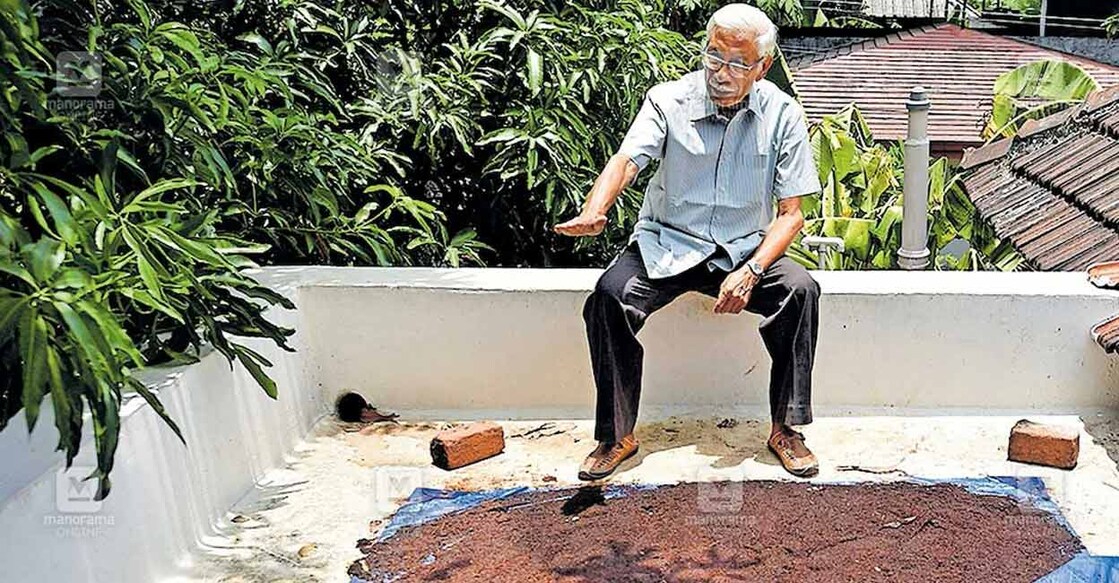Make your interiors super cool by following this inexpensive eco-friendly hack

Mail This Article
With the exponential rise in hot and humid conditions in Kerala, the sale of air conditioners also sky-rocketed. But, air conditioners are not eco-friendly. So, CD Scaria, a native of Kuriachira, Thrissur, developed a cooling technique that is both nature-friendly as well as inexpensive. He vows that home interiors could be cooled by spending just Rs 400 using the technique. Interestingly, Scaria had successfully tried this method in his own house around two decades ago. The temperature inside the house wouldn’t rise above thirty degrees even if the temperature outside reaches forty degrees.
Coco peat briskets are paved on the terrace and then watered to cool down the interiors. There is no need for electricity to manage this system. Moreover, this method is eco-friendly and is extremely affordable too. Scaria thought about ideas to reduce the heat inside the rooms, around twenty years ago, when the summer sun got really harsh. He even tried many tricks like paving hay on the terrace to cool down the interiors. Scaria then paved coconut fronds and watered them. But, he had to scrap this idea as the coconut fronds became the breeding ground for bugs and centipedes.

It was a friend who advised him to try coco peat. Scaria brought some coco peat from Kandassankadavu, paved them on the terrace and regularly watered them. He noticed that the temperature inside the house had reduced significantly. However, the coco peat began staining the walls. Scaria soon came up with an idea to prevent this. He spread a tarpaulin sheet on the terrace before paving the coco peat briskets. He has been trying this method for years to keep the interiors of his house cool. Now, Scaria uses coco peat briskets instead of loose coco peat.
A single piece of coco peat brisket that weighs five kilos could be purchased for Rs 130. Two such briskets are used by Scaria at his house. These briskets are covered using tarpaulin sheets too. The coco peat briskets are watered once in a week. Interestingly, cocopeat can store ten times more water than coconut fronds. However, Scaria says that sun rays shouldn’t be allowed to enter the house during the daytime. The briskets have been paved over the bedroom and office space.
Scaria says that coco peat doesn’t smell foul; so, you need not stress about that. Even though experts in the construction sector say such methods would lead to leakages in concrete buildings, Scaria vows he hasn’t experienced anything like that until now. Meanwhile, his neighbours and friends too have tried this method to reduce the heat inside their houses. People often visit Scaria’s house to see and understand how this cooling hack works. Phone – 8075247681.

